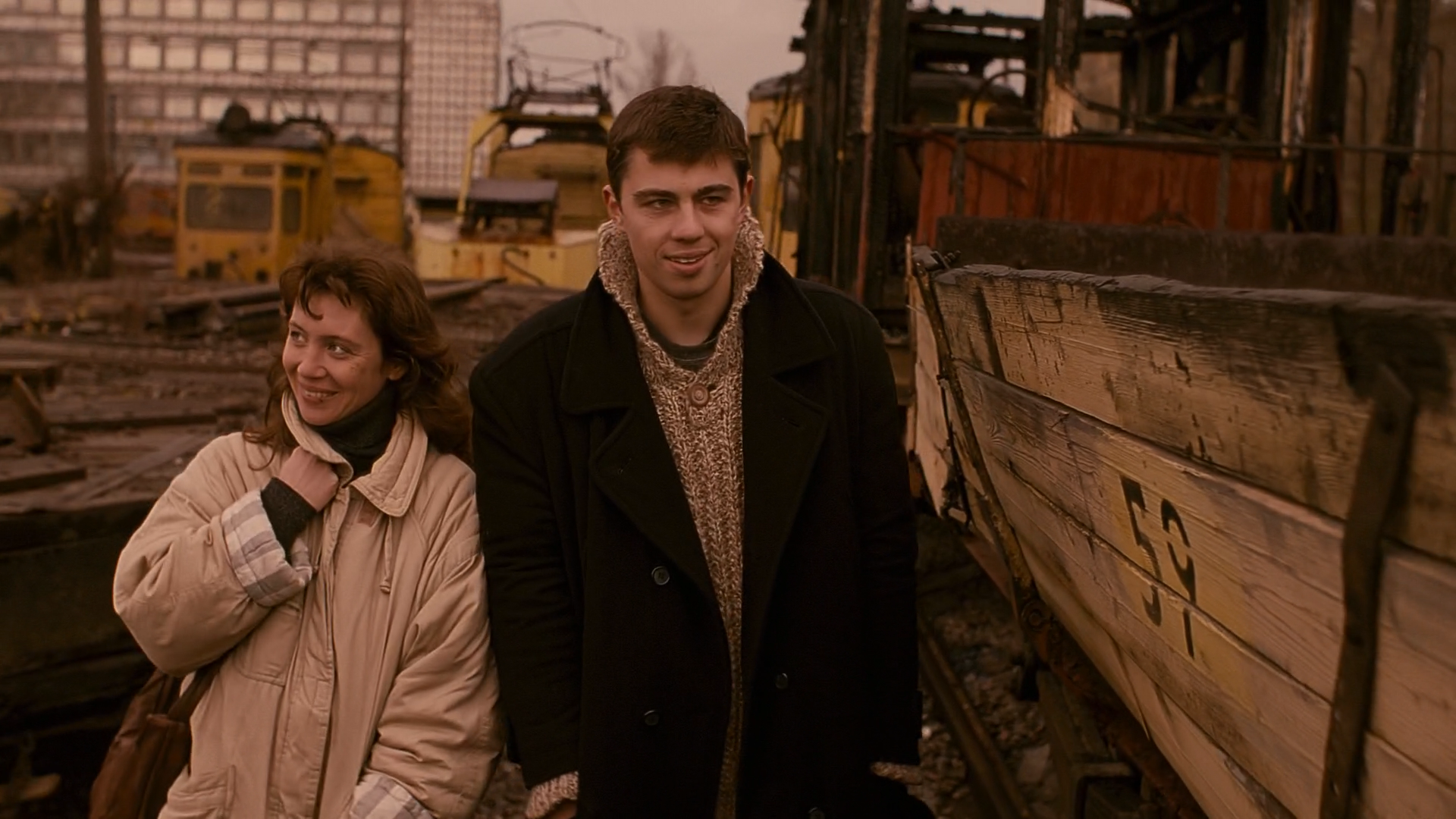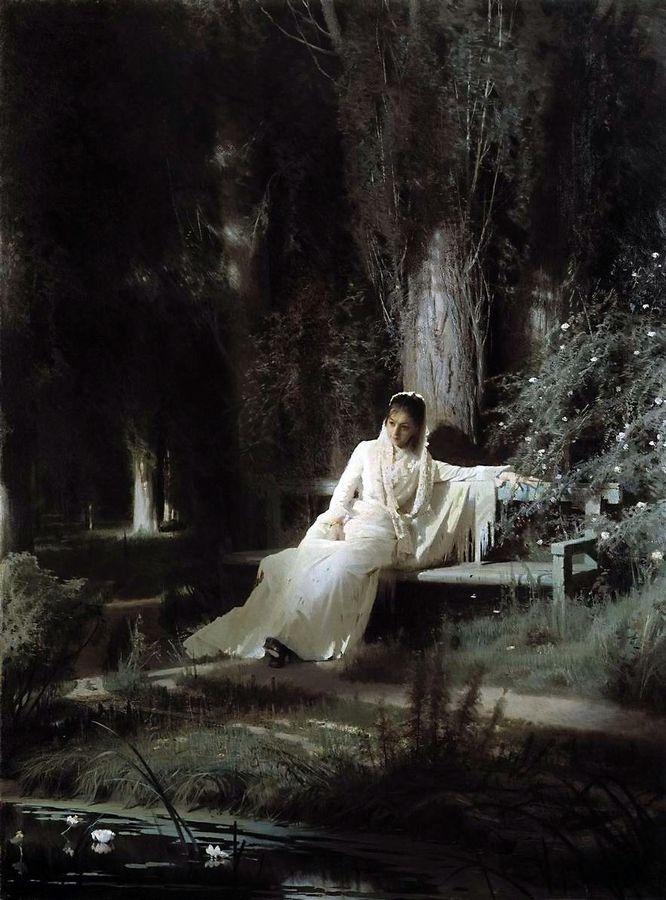In the West man subconsciously regards society as unrelated to him. Society indicates the limits he must not exceed; in exchange for this he receives a guarantee that no one will meddle excessively in his affairs ... In the East there is no boundary between man and society. His games, and whether he loses or wins, is a public matter. He is never alone. If he loses it is not because of indifference on the part of his environment, but because his environment keeps him under such minute scrutiny.
Czesław Miłosz, The Captive Mind
This famous book is an intellectual's view on Communism, or Marxism-Leninism, or Stalinism, or whatever it happened to be called at the time, movements that do not, by definition, allow for intellectuals to exist. To put it another way, intellectuals only gain such a title by being allowed to deviate intelligently from what we may call bourgeois values. Since Marxism-Leninism is also in opposition to bourgeois values (at least in theory) an alliance seems to take natural shape, and yet the seventy-odd years of Soviet dictatorship featured some of the most anti-intellectual regimes known to man. How this occurred sheds some light on the nature of power, as well as on the persons who spoke in shades of red but behaved like any other robber baron at any other time in history.
 Composed by Miłosz in the middle of life, at age forty-two, The Captive Mind was revised when the poet was already sixty-nine. In twenty-seven years of removing masks and exposing lies one by one, Miłosz saw nothing to indicate that Russians (who should really be called Soviets, but he insists on making the matter national rather than doctrinal) had changed their baleful ways. That he repeatedly denigrates Russia as "a backward nation" shows his nasty biases that betray his argument. In what was 1917 Russia backward? In industry? Is this the measure of a country's development in the eyes of an intellectual? Miłosz makes one mistake: he cannot decide whether he is a poet or an economist. To be certain, poets do not normally make good economists; and I have never heard of an economist becoming a good poet. In terms of art Russia was far from backward: he rightly praises its drama as the very best and occasionally has laudatory words for writers like Blok. But on the whole Russia to him is a primitive wasteland, whereas Poland and Lithuania are somehow among the most advanced countries in the world (the Baltic states "stood on a definitely higher level of civilization than other Soviet citizens"). But these are all cavils. We will forgive him his chauvinism because we cannot begrudge him his anger. And twenty-eight years after the Berlin Wall's last ballyhooed sighting and thirteen years after his own death, Miłosz's remarkable work possesses almost unrivaled relevance.
Composed by Miłosz in the middle of life, at age forty-two, The Captive Mind was revised when the poet was already sixty-nine. In twenty-seven years of removing masks and exposing lies one by one, Miłosz saw nothing to indicate that Russians (who should really be called Soviets, but he insists on making the matter national rather than doctrinal) had changed their baleful ways. That he repeatedly denigrates Russia as "a backward nation" shows his nasty biases that betray his argument. In what was 1917 Russia backward? In industry? Is this the measure of a country's development in the eyes of an intellectual? Miłosz makes one mistake: he cannot decide whether he is a poet or an economist. To be certain, poets do not normally make good economists; and I have never heard of an economist becoming a good poet. In terms of art Russia was far from backward: he rightly praises its drama as the very best and occasionally has laudatory words for writers like Blok. But on the whole Russia to him is a primitive wasteland, whereas Poland and Lithuania are somehow among the most advanced countries in the world (the Baltic states "stood on a definitely higher level of civilization than other Soviet citizens"). But these are all cavils. We will forgive him his chauvinism because we cannot begrudge him his anger. And twenty-eight years after the Berlin Wall's last ballyhooed sighting and thirteen years after his own death, Miłosz's remarkable work possesses almost unrivaled relevance.
He begins with an examination of what it is like to be a socialist writer, a fate which in 1953 was no more pleasant than that of the Soviet-endorsed slag now polluting dark, unvisited corners of university libraries worldwide. His survey is initially framed around an obscure novel by this well-known Polish author, and throughout The Captive Mind the non-Polish reader will feel somewhat alien to the discussion. This is both a good and bad thing. The bad element is rather obvious, and becomes more evident in the four middle chapters. Named after the first four Greek letters, they compose a roman à clef to four other well-known Polish writers of varying stature. I should say, there is no roman to speak of, only, we are told, facts. And the facts are not complimentary. Take his opening description of this writer, to whom he refers as Beta:
When I met Beta in 1942, he was twenty years old. He was a lively boy with black, intelligent eyes. The palms of his hands perspired, and there was that exaggerated shyness in his behavior that usually bespeaks immense ambition. Behind his words one felt a mixture of arrogance and humility. In conversation he seemed inwardly convinced of his own superiority; he attacked ferociously yet retreated immediately, bashfully hiding his claws. His ripostes were full of pent-up irony. Probably, though, these characteristics were most pronounced when he spoke with me or with other writers older than he was. As a beginning poet, he felt he owed them a certain respect, but actually he believed they were none too deserving of it. He knew better; in him lay the promise of a truly great writer.
That this passage is almost boilerplate for any Romantic poet who subscribes to the aesthetic tendencies of Milton's most nefarious creation would be damning enough; what makes it more interesting is that Borowski is the only writer of the four consistently read in survey classes outside of Poland. Andrzejewski (Alpha) is best known for the novel on which this film was based (one of my father's favorites as a college student); the works of Putrament (Gamma) and Gałczyński (Delta) are really only discussed by professional Slavists. Although hailed first and foremost as a poet, Miłosz's malicious and thinly-veiled satire of his compatriots is a joy to read in the same way that any great characterizations in any great novel seem glowingly real. Half-Russian and quick to denounce his friends to save his own skin, Putrament is the easiest target and gets by far the roughest treatment ("Tall, slightly stooped, he had the long, ruddy face of a man who has spent much time with guns and dogs").
The benefit of the book's Polishness can be found in the plethora of insider details: Borowski's unnecessary boastings about his ingenious behavior while in a concentration camp; Putrament's inability to describe Miłosz's hometown in anything but the most banal of colors, his subsequent career as a diplomat "for Red Poland," and his odd second wife ("a Polish soldier-wife ... wearing heavy Russian boots"); the poet Gałczyński's drunken demands to be paid up front for any work, almost as if he were running a print-on-demand service; and the ironic stabs at the haughty Andrzejewski's moralizing and distance from his peers. The depictions of these four Poles, two of whom would die rather young, that form in the reader's mind are as striking and focused as their socialist messages are vague and contrived. Upon revising his work almost thirty years later, Miłosz saw little need to apologize for the venom that oozes out of most of his pages. After all, socialism or whatever it happened to be called at the time (never trust a movement that cannot decide on its own name) was ostensibly still going strong. There was still a need to smash the plastic matryoshka into smithereens and expose its hollowness; there was still a need to inform the West and the (albeit dwindling) number of Communist sympathizers that what they heard and saw was absolute poppycock.
Yet whether they were true socialists or not might have to do with another phenomenon, which Miłosz calls Ketman. Miłosz takes the word from a work by this French writer whose legacy is mired in controversy (in a fantastic bit of understatement, Miłosz terms him "dangerous"), and the word is the same as the Arabic kamin, which means "secret" or "hidden." Generally it implied a method in Islamic thought whereby a dissenter could hide his spots, and Miłosz has no qualms about appropriating it for his context. Dissent did not need to be, however, the main impetus behind such chicanery:
The people of the Moslem East believe that 'He who is in possession of truth must not expose his person, his relatives or his reputation to the blindness, the folly, the perversity of those whom it has pleased God to place and maintain in error.' One must, therefore, keep silent about one's true convictions if possible.
There were also practical consequences for such modesties, but these, I assume, require no explanation. It is to Miłosz's credit that he attempts, if halfheartedly at times, to assign a form of Ketman to each of the four Polish writers he exposes in the following chapters. He assumes that they since there is something or a lot of the artist in them, they cannot possibly accede to the nonsense that the Soviet state wants Polish literature to become. They have the concerns of family, ostracizing, and, of course, finances to take into consideration. But in the end they do not decide to emigrate or break openly with the party (Andrzejewski would be an exception later in life). They are all prisoners, often well-fed and well-groomed ones, but prisoners nonetheless. Ketman also has far-reaching ramifications for the path of the human soul:
To say something is white when one thinks it is black, to smile inwardly when one is outwardly solemn, to hate when one manifests love, to know when one pretends not to know, and thus to play one's adversary for a fool (even as he is playing you for one) – these actions lead one to prize one's own cunning above all else.
Communism in its European variant is over now, but it once was considered the greatest revolution in modern history. Strange that, when you consider how individual we have all become and how much we shun the collective good in favor of our own selfish needs. We may believe the aphorism that no one can imprison our minds, and that might be true with one qualification. The only imprisonment of our minds occurs when we choose to accept a truth imposed upon us from without, a truth we know to be as fabricated as the cheap clothing we are allowed to buy. It is much easier than waking up every morning and trying to escape.
 Saturday, August 12, 2017 at 16:43
Saturday, August 12, 2017 at 16:43 
 A summer's day like sleep departs;
A summer's day like sleep departs; 




